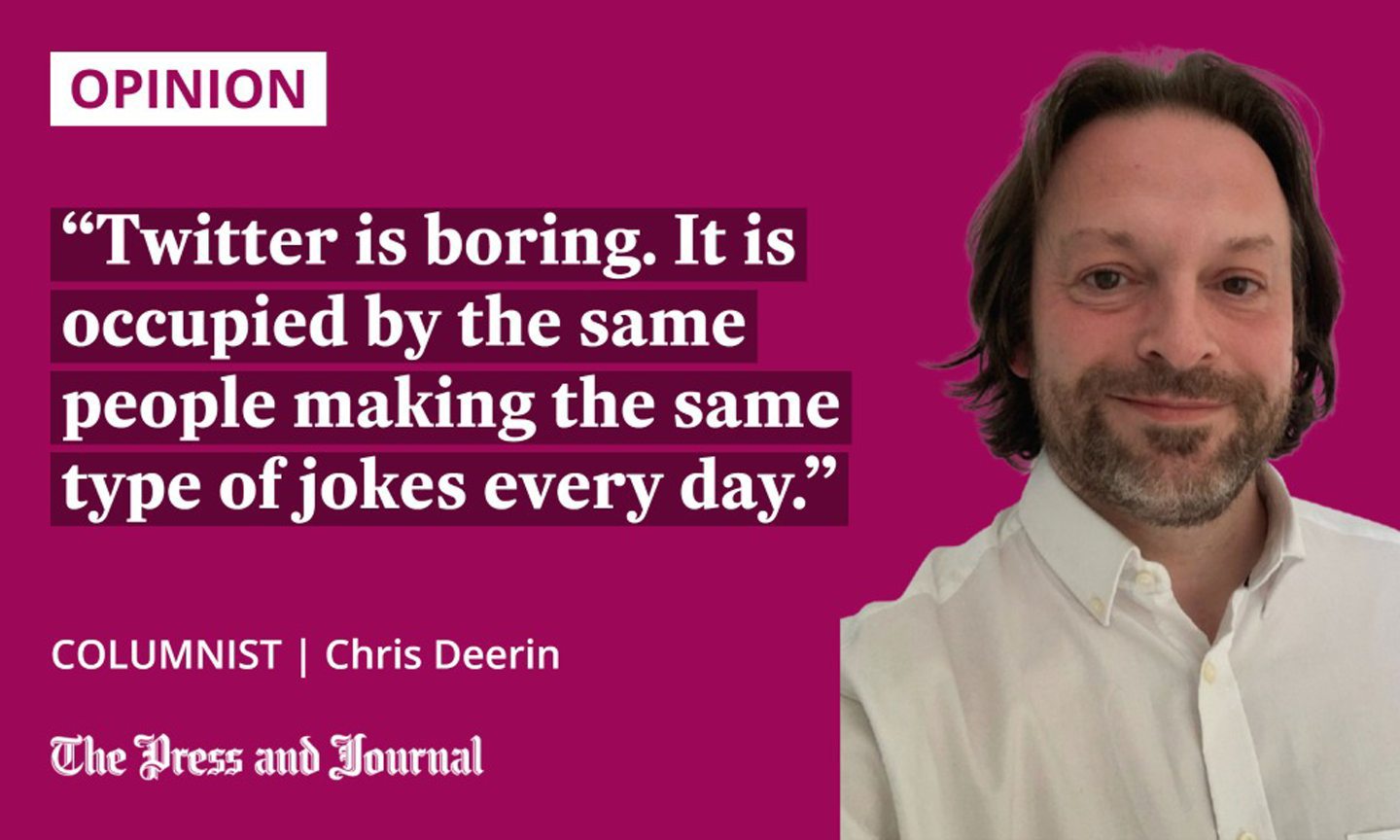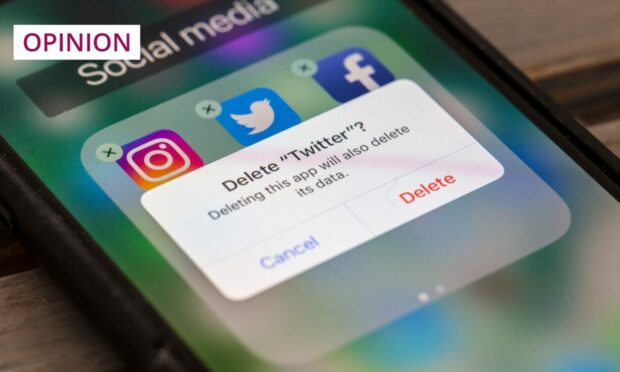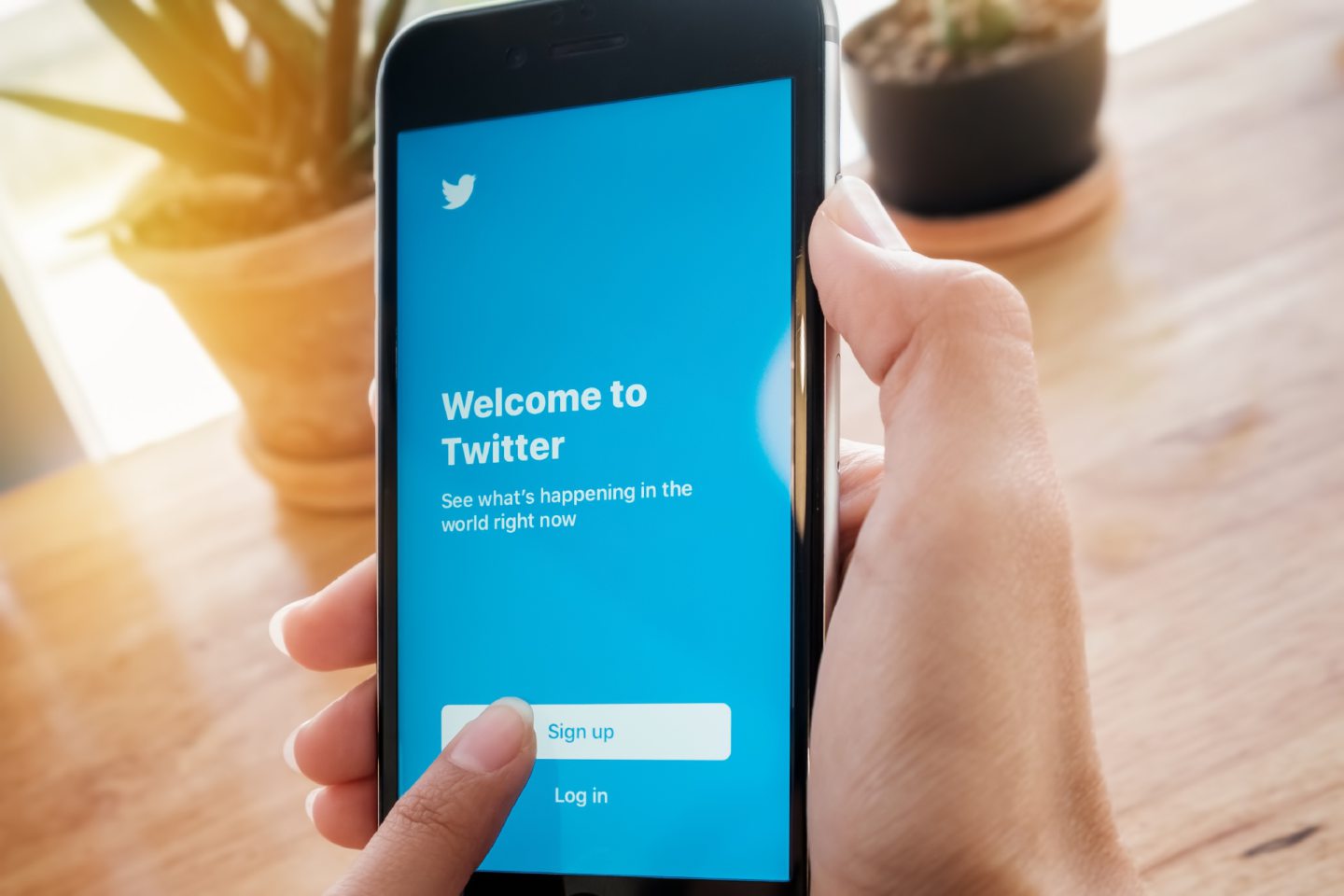There is life after Twitter, writes Chris Deerin, as he admits how much better he feels following a departure from the social media platform.
Around 10 weeks ago, I finally broke it off with Twitter.
This had nothing to do with Elon Musk. Rather, after 12 years, things had grown stale between us, and we just weren’t getting along as we used to. Like someone who has left behind a domineering, controlling partner, I feel so much freer as a result.
Admittedly, the impetus for the break was unplanned: an unexpected stay in hospital, with little internet access, followed by a lengthy recovery at home, during which I didn’t much feel like getting shouted at by strangers.

But, still, as with any unhealthy relationship, it sometimes takes an outside jolt, the sudden enforcement of a fresh perspective, to give you the strength and insight to quit.
Stuck in bed, I would occasionally flip on my phone to see what was going on out there – two minutes of Twitter, of the endless, competitive opinions and arguments and swagger and preening, was enough to send me digging back under the covers.
I was a reluctant joiner in the first place, back in 2010, but quickly found a community that was fun, interesting and interested. That Twitter was a very different place to what it is now. It was more innocent, for a start – I remember posting instructions for how to make a sofa fort and watching, amazed and delighted, as people I didn’t know from around the world started sending me pics of their heads poking out of various crazy constructions.
There was a lot of that back then – the site’s value was its licence to be silly and a bit vulnerable with each other, and the shared trust that made this OK.
What went wrong on Twitter?
I made real-life friends from online exchanges, got to know some extraordinary people, even found myself in a band as a result of those conversations. Twitter became not just a place to chat to other journalists, but to musicians and novelists, politicians and academics.
It was a place where business was done, the equivalent of the village square, where people knew they could find you – “would you write…?” or “is there any chance you could come and speak to…?” It was addictive – like many regular users, for a long time, I spent large chunks of my day on the site.
But the sky would soon darken. Though, from its early days, Twitter had always been quite a political place, and you’d have the occasional barney, there was less heat in the exchanges, and people behaved rather better (or at least that’s how I remember it). Then, as the 2014 independence referendum approached, the mood, and the crowd, began to change.
You were now deliberately sought out and abused by people who violently disagreed with your opinions. As a writer supporting a No vote, I was targeted by the most virulent members of the Yes movement. It was personal, unpleasant and designed to ruin your day. Too often, it worked.
Then came Brexit, and the often racist, thick Farageistes. Next, the Corbynites, perhaps the worst of the lot – full of themselves and their mad, unpopular ideology, as they destroyed the Labour party, ushered in a thumping Boris Johnson majority, and viciously went after those who weren’t pure enough for them.
I’ve chosen a slower pace
Truthfully, Twitter has not been worth it for a long time now. No matter how many objectionable types you block, there are always more creeping from under the floorboards.
Just as damaging, though, is how stale it has grown. Twitter is boring. It is occupied by the same people making the same type of jokes every day, people who never seem to tire of seizing on the latest meaningless meme and draining it of every last bit of what passes for online humour and sass.
There must, surely, come a point, where you grow out of finding that fun? Where you just get a bit old for it?
Awesome new Twitter merch! pic.twitter.com/zqdL9xGRuR
— Elon Musk (@elonmusk) November 23, 2022
Maybe that’s what’s happened to me. When Musk took over and began to strip the company of its employees, leading users to predict that the site would soon fall over due to neglect, there was a rush of the herd to something called Mastodon. It seems to be a Twitteresque-but-not-as-good platform, whose main attraction is that it isn’t owned by Elon Musk. I haven’t followed, and won’t.
Instead, what I have found since leaving is that life has taken on a slower, more pleasant pace. I’ve realised I don’t need to know everything that’s happening the very second it’s happened – that the important stuff will reach me quickly enough.
If anyone genuinely needs me, well, I’m not exactly hard to find
When I’m in the room with friends and family, I’m properly in the room – not a glazed automaton, sniggering at a joke made by someone in, say, Crouch End, as I try to think of a clever response.
Each week, I receive an automatic message on my iPhone telling me how much time I spent online the previous week – this used to be a figure that horrified me, but now it’s down to next to nothing.
So, if anyone genuinely needs me, well, I’m not exactly hard to find. I’ll get back to you… eventually.
Chris Deerin is a leading journalist and commentator who heads independent, non-party think tank, Reform Scotland


Conversation